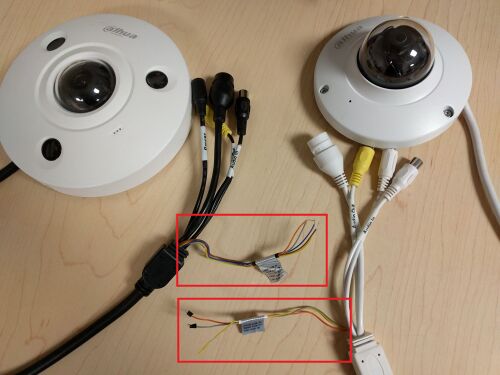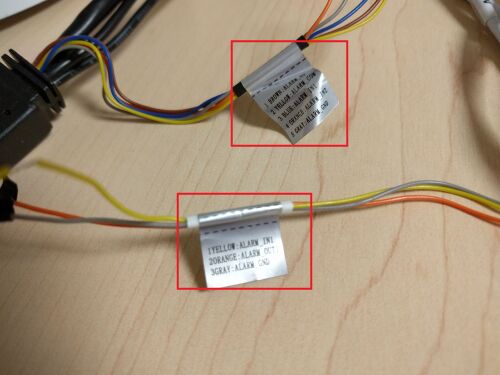Difference between revisions of "Ip camera alarm"
m |
|||
| Line 27: | Line 27: | ||
*[[Troubleshoot/NVR/Unable_To_Disarm_Alarm|Troubleshooting Disabling alarm]] | *[[Troubleshoot/NVR/Unable_To_Disarm_Alarm|Troubleshooting Disabling alarm]] | ||
*[[Access_Control/How_To_Connect_Electronic_Buzzer|How to wire an alarm output]] | *[[Access_Control/How_To_Connect_Electronic_Buzzer|How to wire an alarm output]] | ||
| + | [[Category:Alarm]] | ||
| + | [[Category:Camera]] | ||
| + | [[Category:Camera Troubleshoot]] | ||
| + | [[Category:IP Camera]] | ||
Revision as of 20:56, 7 June 2016
IP Camera Alarms
Identifying Wired Alarm Types
There are two types of camera alarm operations:
1. Alarm outputs: These are wires that control the output functions of the camera such as a door lock, LED indicator, siren, garage door. The reasoning behind having an output like this is to create or configure some response or control when the camera is sent an input message. There are two types of alarm outputs:
a. Relay operated outputs: This alarm output operation is used on a majority of Dahua IP and HDCVI Cameras that are specified to have an alarm out system. You will be able to tell the type by:
- Alarm_NO, Alarm_COM, and Alarm_Gnd.
- ~0 ohm circuit once the relay is activated.
b. Control operated outputs: This alarm output operation is used on a minority of Dahua IP and HDCVI Cameras that are specified to have an alarm out system. You will be able to tell the type by:
- ALARM_OUT1, and ALARM_GND.
- ~100 ohm circuit once the circuit is activated.
2. Alarm inputs: Think of the alarm inputs as simple circuit that will feed information to the camera by a shift from normally closed to normally open, or normally open to normally closed. Sensors such as magnetic door sensors, push buttons, trip wires can create continuity or break continuity to signal the camera via:
- ALARM_IN1, and ALARM_GND

